As progress continues to diversify the male-dominated property industry, women discuss their experiences and explain how confidence and allyship are key for those looking to enter the sector.
Margaret Sweeney, chief executive of I-RES
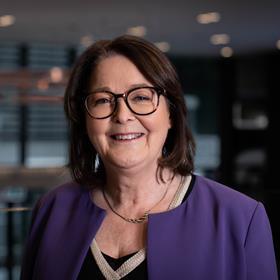
I believe visibility as a female chief executive is invaluable, particularly in sectors such as property, where women are underrepresented. I came into the sector with experience as a non-executive director and as a chief executive in other industries. That broad range of perspective has been beneficial, as I believe the sector needs to think about itself as a service provider, catering to the needs of an increasingly diverse society. That means we need a talented and diverse mix of people in leadership, from all backgrounds, so that we can properly reflect the needs of our customers. Women have a key role to play in this.
At I-RES, we are committed to delivering high-quality accommodation and customer service in well-connected, family-friendly urban communities. We have a great mix of diverse people working towards this. Our employee base is nearly 50/50 men and women. We have strong female participation within our board, and this was recognised at EU level last year, with I-RES being only one of two Irish companies from the European STOXX 600 that were identified as being ‘best practice leaders’ in the European Women on Boards Gender Equality Index.
The real estate sector holds an abundance of opportunity, particularly in the residential sector, to embrace technology and leverage it to create new processes and efficiencies for the future. This is something we are focusing on in 2023. There will also be challenges for the year ahead as 2023 holds a lot of macro volatility, particularly in relation to interest rates. Central banks are still very much indicating that interest rates will continue to be increased to try and reduce high inflation. This will have a significant impact on the real estate sector overall. But we are well positioned to deliver growth and value in the medium term.
Uma Rajah, chief executive, CapitalRise
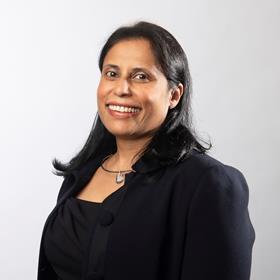
As chief executive, I am ultimately responsible for all aspects of the business: from creating our strategy, to execution of that strategy, and all aspects of running the company – including recruitment. I approach all hiring processes without bias and, as a result, we have a diverse team. In general, the property finance sector isn’t very diverse. For example, we lend to prime property developers, and it’s rare that our clients are women.
We have institutional investors, and we have a platform where private investors can invest in our loans. While our private investor client base is more diverse, our institutional investors predominantly consist of all-male teams. In fact, I don’t have a single principal that I interact with who is a woman.
It is encouraging to see things improving already, albeit very slowly. For instance, I studied engineering at Cambridge University in the early 1990s and arrived on my first day to find myself the only female fresher in my college studying the subject. In 2010, WISE data showed that only 10.5% of engineers were female and by 2022 this had increased to 16.5%.
More needs to be done in the education system to raise awareness among young people of how both finance and property can be exciting sectors to work in and are accessible to all. The world of finance has been turned on its head through rapid advancement of technology, and the property industry has so much to offer. These industries can offer a range of roles that would appeal to people who love maths, science and engineering, to those who love art and design and everything in between – there is something for everyone.

Property Week’s inaugural Inspiring Women in Property Awards, taking place on 12 October in London, will celebrate those driving positive change for women in property.
Submit your free nominations today
Jenna Harris, partner, Harris Associates
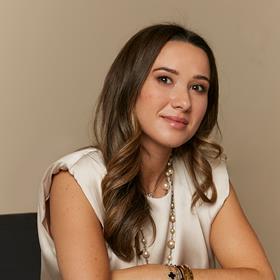
The broader business strategy of Harris Associates is a key focus to my role, but I also work on individual projects and bring them to market. Being a woman in this role is extremely exciting as I can impact and shape the landscape for women within the industry, encouraging women to go for more senior roles. The prospect of more women being a part of how the city is shaped and develops is incredibly positive.
I was exposed to the property industry from a young age. While the industry is exciting and dynamic, it is archaic compared to the tech and digital space. The possibility for change really attracted me to the industry as there is an opportunity to bring projects to investors in a more disruptive and engaging way. We have transformed a 20-year business into an entrepreneurial start-up environment providing clients with the best bespoke service and educating them into new sectors as well as new investments, while also leaning into technology and marketing to disrupt the entire sector.
When I started my career, I reached out to other women in the industry who met with me, sent me opportunities, and invited me to female-led business events. This gave me the confidence to come into the sector and I saw that there was room for someone like me. Confidence is key for women looking to join the sector and having allies, mentors and role models in the industry can help with this. There is always more to be done, but the tide is certainly turning, and the industry has far more representation for women in leadership roles.
Harris Associates recently achieved a 50/50 female to male workforce, which I want to continue as we expand. Balance is key to creating the best environment, creativity, opportunity and perspective. Different points of view and experiences are invaluable – without that, your business and the industry becomes stuck and uninspiring.
Going forward, female-to-female mentorship within the industry will be key as it gives women the confidence to push themselves for the roles they probably already deserve, to feel worthy for promotions and ask what they need to do to achieve them - and, ultimately, not be afraid to put themselves forward for opportunities.
Katerina Papavasileiou, associate director, real estate ESG and responsibility, Federated Hermes

I head ESG and have responsibility for real estate and real estate debt, which involves ensuring the team progresses and meets ESG commitments on net zero carbon, biodiversity, and social value, as we seek sustainable returns for our clients. I ensure the team has the direction and tools needed to feel confident they have the capability to meet our ambitious commitments. I feel every hour of my workday has a positive impact on the environment and society, because it involves improving people’s lives in the communities we operate in and reducing the impact on climate change. Decarbonising our portfolio is also extremely rewarding. I am motivated by the fact that I have an added-value job.
I have always been interested in sustainable communities. Before I began my career, I studied management science, economics and environmental policy. I started my career in the built environment, having a strong interest on how we can improve people’s lives while improving our environment. Therefore, I began working for an non-governmental organisation running sustainability awareness programmes before joining a construction company, followed by property management, where I advised investors on their ESG implementation plans.
My diverse background and career path means I have seen the property industry from different areas, wearing different hats. If we want to make progress, we need to focus on taking a step back to review problems from a different perspective. Federated Hermes has many diversity initiatives, including investment training programmes. I carried out inclusive and diverse recruitment training, which is not just about training for women, but also about how to create a more inclusive environment at senior-manager level to attract more people. There is a serious effort to try and create career paths and developments internally to ensure women are included in the whole decision-making process.
Stephanie Chan, valuations director, GLP Europe

Being part of the European Asset Management Team at GLP, I am responsible for overseeing valuation cycles and requirements of our European operating portfolio of 91.5m sq ft, with assets under management of €16.3bn (£14.5bn). My role is relatively new within the business and what I’ve found most rewarding so far is my ability to make a real difference to the structure and management of our valuation process.
I have had the opportunity to lead a number of global and European mandates for both GLP and CBRE. It is often challenging to co-ordinate workstreams across up to 20 countries over multiple asset classes, with differing jurisdictions and valuation methodologies. I have always felt able to accomplish these tasks successfully in pressured situations, and delivering high-standard outputs to stakeholders is something to be proud of.
On a personal level, I find the experience of mentoring highly rewarding. I used to help run the CBRE Women’s Network mentoring programme and would love to offer more support to industry-wide mentoring schemes such as CREW.
GLP has longstanding partnerships with schools and universities to promote real estate as a career path; we ensure our diverse workforce is fairly represented at these career events. Internally, GLP have recently enhanced the maternity leave policies to enable greater flexibility, and structured programmes for returning mums. We also hold regular “Lunch and Learn” sessions inviting guest speakers to celebrate the various D&I occasions, for example we hosted Real Estate Balance on International Women’s Day last year.
The focus has primarily been on recruiting more women at the graduate level, as well as improving support for returning and working mums, which are crucial. What I find to be somewhat lacking is the career support available to help elevate women who aren’t grouped into those categories mentioned. The industry needs more female role models from a wider range of backgrounds and at different stages of their careers to demonstrate what is possible.
Kirsty Wilman, executive director, business management, Federated Hermes
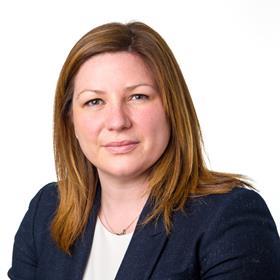
I work with the real estate chief executive to set and execute a strategy focused on growing the real estate business with new products, strategies and clients. I support the fund managers on all corporate, financing and structuring transactions. I am also responsible for setting and implementing an ESG and sustainability strategy across the real estate portfolio. I am proud to have had a career where I have been continuously challenged and stretched, finding new challenges and embracing them, and it’s rare for me that any day or week is predictable.
There is progress in the sector [to create a more diverse workforce, inclusive of women], but it is slow and can be frustrating. To make the workplace more diverse, we need to think about it from all angles: how we attract diverse talent at the entry level; what we are doing to retain and progress people; and how we recruit with diversity front of mind. We need to look at policies to make sure they encourage equality, for example, shared parental leave and recruitment policies, but we also need to embrace a culture where diversity is welcomed and celebrated, especially since we know the benefits of a diverse workforce.
Alongside my role at Federated Hermes, I am a non-executive director for Real Estate Balance, which sets out to address diversity in real estate. The focus is what we can do in very practical terms with a toolkit for members, events and campaigns that support diversity, a very active and brilliant Next Gen Committee and 10 commitments for diversity for senior leaders to sign up to that ensure strategic direction. As an industry, we need to be much more vocal about the fantastic range of opportunities there are in the sector; it is a huge and fascinating sector, with such a range of jobs, and we should be shouting about it to attract and retain more diverse talent.
Sophie Goddard, director of sustainability, Canary Wharf Group
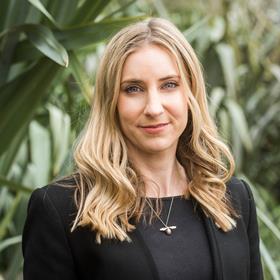
The most rewarding part of my role is the ability to affect positive change. We have partnered with the Eden Project to transform our public realm so we can create a space that works for people as well as nature. I was attracted to the industry by the ability to really see and create change so directly, through the way a building is designed and delivered. Buildings and the place they create can have a huge impact on the way a person thinks and feels, and it’s exciting to be able to work within an area that allows me to help shape that. A real career highlight for me was recently launching our Ambition into Action summit – the next step in our drive to support the built environment to decarbonise.
My first impression of Canary Wharf Group was at the interview stage, and I found it was welcoming of women. I was called to a panel-style interview including several leaders in the business, half of which were women. I also attended an interview with the chief finance officer Becky Worthington.
It’s also been great to see the improvements led by Jane Hollinshead, our managing director of people, culture and customer, and her team, to create a diverse workforce. There isn’t a one size fits all approach. It’s been great to see the data captured at the broadest sense so we can use it to understand which actions should be taken to create a diverse and inclusive business. We have seen the gender pay gap move from 14% in 2020 to 2.5% in 2022, but at the same time we are taught that we shouldn’t just focus on one specific metric.
We have to ensure we step back and look holistically to create a diverse and inclusive workforce.For example, this means focusing on the ethnicity pay gap too. It’s also important to ensure we don’t separate social mobility and social value from this - these elements are absolutely linked and to see progress, it is important that they are viewed under the same lens.























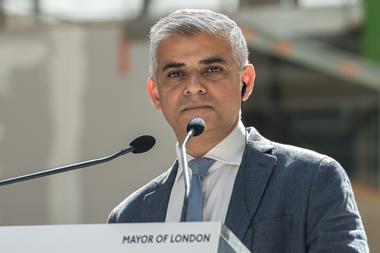





No comments yet